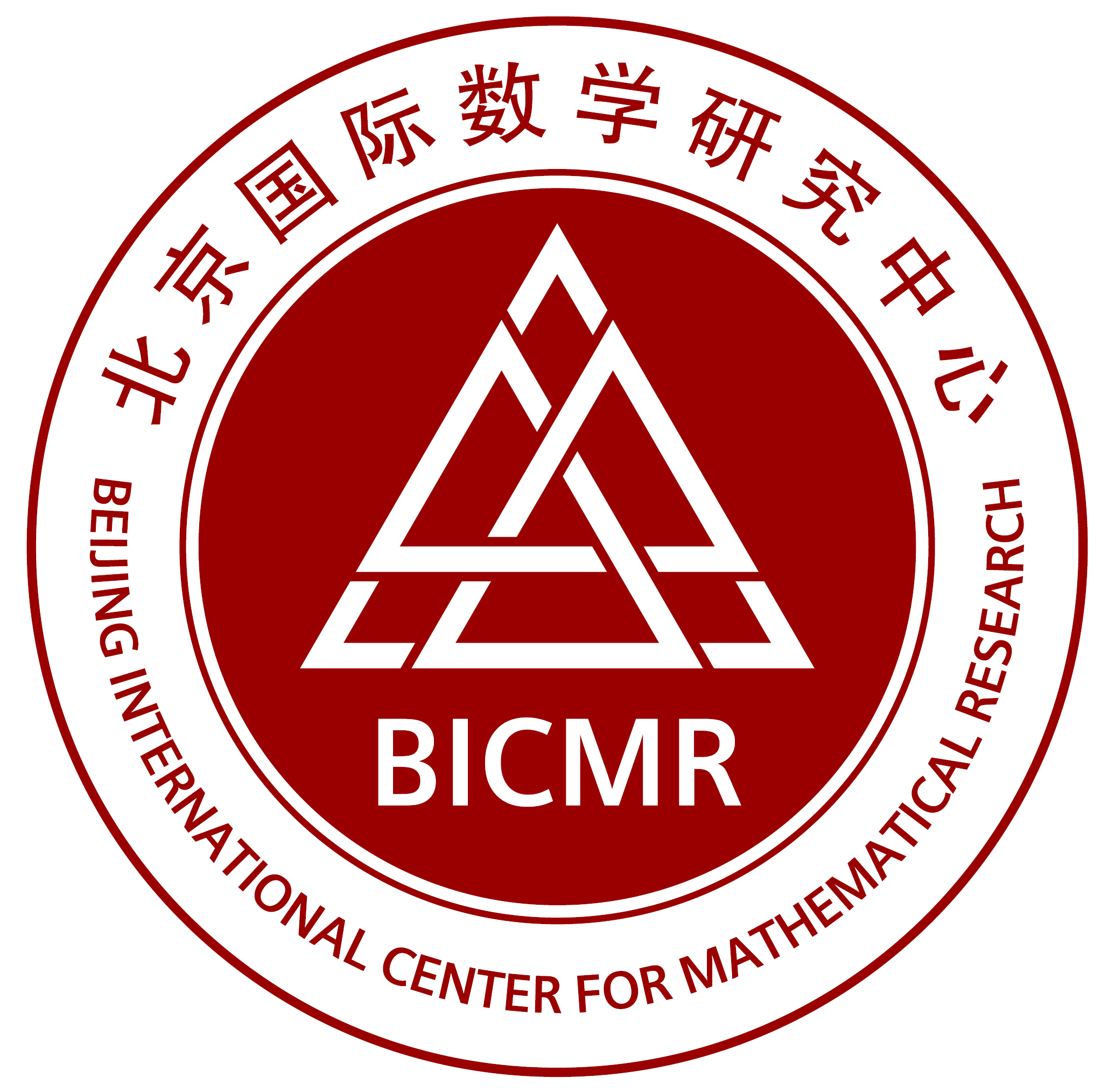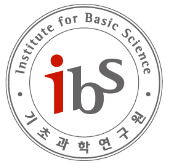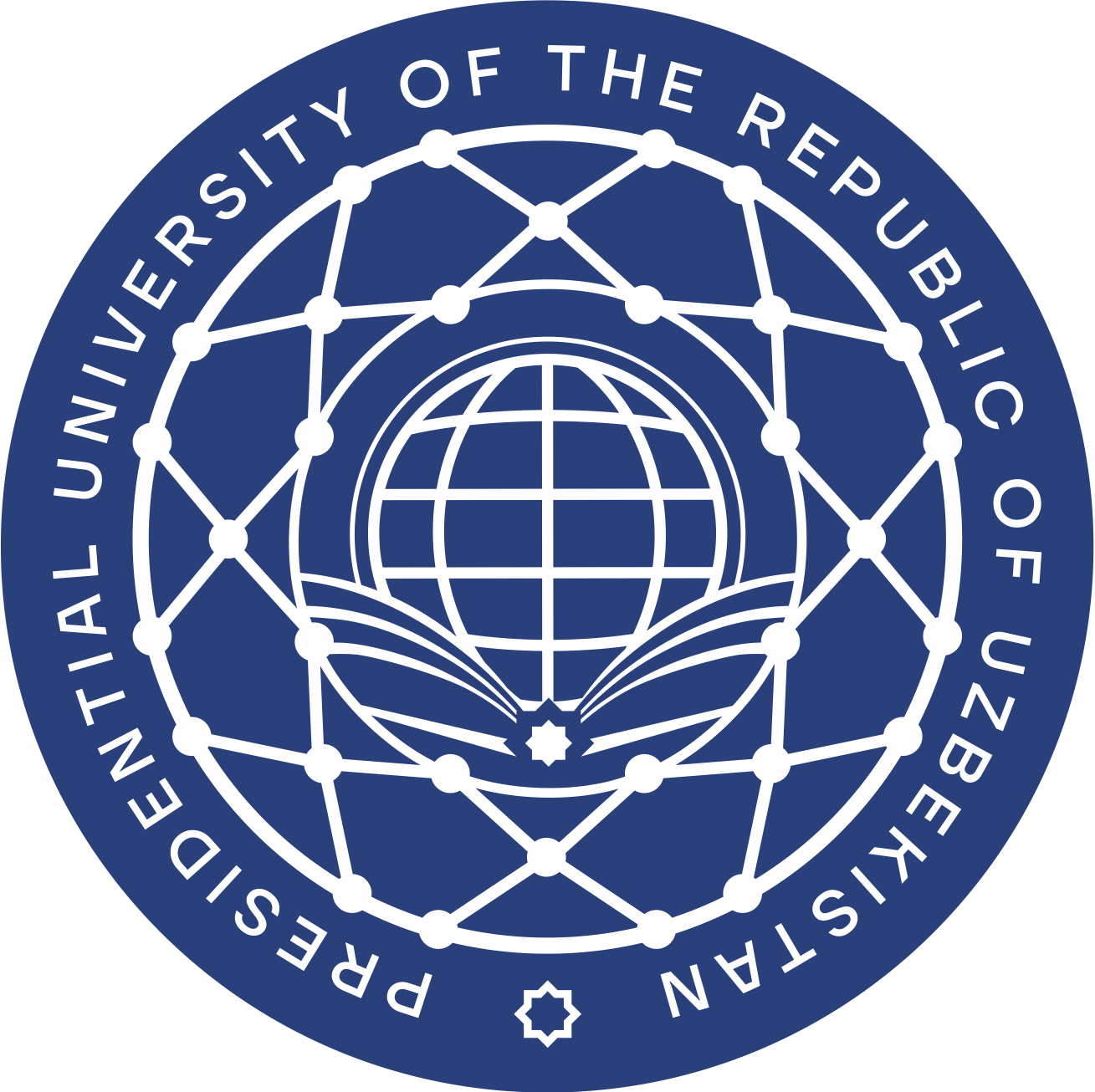BICMR-IBSCGP-NewUU Joint Conference on Geometry, Algebra and Mathematical Physics
May 21-27, 2025, New Uzbekistan University
We are excited to announce that the International Conference on Geometry, Algebra and Mathematical Physics, co-organized by the Beijing International Center for Mathematical Research of Peking University, Center for Geometry and Physics of the Institute for Basic Science, and New Uzbekistan University, will be held in New Uzbekistan University from May 21-27, 2025. The conference will provide for scholars from China, Korea, Uzbekistan and beyond to exchange ideas, collaborate on research, and build lasting connections.
Scientific Committee
Shavkat Ayupov (Uzbekistan Academy of Sciences, Uzbekistan)
Farkhod Eshmatov (New Uzbekistan Univerisity, Uzbekistan)
Xiaobo Liu (BICMR, Peking University, China)
Yong-Geun Oh (IBS Center for Geometry and Physics & POSTECH, Korea)
Jihun Park (IBS Center for Geometry and Physics & POSTECH, Korea)
Gang Tian (BICMR, Peking University, China)
Organizing Committee
Bahodir Ahmedov (New Uzbekistan Univerisity, Uzbekistan)
Xiaojun Chen (New Uzbekistan Univerisity, Uzbekistan & Sichuan University, China)
Yong-Geun Oh (IBS Center for Geometry and Physics & POSTECH, Korea)
Rustam Turdibaev (New Uzbekistan University, Uzbekistan)
Qizheng Yin (BICMR, Peking University, China)
Bakhtiyor Yuldashev (New Uzbekistan Univerisity, Uzbekistan)
List of Speakers
Yalong Cao (Chinese Academy of Sciences)
Guodu Chen (Shanghai Jiao Tong University)
Xiaojun Chen (New Uzbekistan University/Sichuan University)
Farkhod Eshmatov (New Uzbekistan University)
Huijun Fan (Wuhan University)
Isroil A. Ikromov (Uzbekistan Academy of Sciences)
Jingjun Han (Fudan University)
Yoosik Kim (Pusan National University)
Igor Krylov (IBS Center for Geometry and Physics)
Sukjoo Lee (IBS Center for Geometry and Physics)
Zhiyuan Li (Fudan University)
Yongqi Liang (University of Science and Technology of China)
Wenfei Liu (Xiamen University)
Wenhao Ou (Chinese Academy of Sciences)
Jinhyung Park (KAIST)
Emanuel Scheidegger (Peking University)
Guo Chuan Thiang (Peking University)
Zhiyu Tian (Peking University)
Jorge Gigante Valcarcel (IBS Center for Geometry and Physics)
Joonyeong Won (Ewha Womans University)
Xiaomeng Xu (Peking University)
Di Yang (University of Science and Technology of China)
Song Yang (Tianjin University)
Bin Zhang (Sichuan University)
Schedule
| May 21 Wednesday | May 22 Thursday | May 23 Friday | May 26 Monday | May 27 Tuesday | |
|---|---|---|---|---|---|
| 09:00-10:00 | Open ceremony | Krylov Igor | Cao Yalong | Ikromov Isroil | Turdibaev Rustam |
| 10:00-10:20 | Tea/coffee break | ||||
| 10:20-11:20 | Fan Huijun | Chen Guodu | Park Jinhyung | Liu Wenfei | Chen Xiaojun |
| 11:30-12:30 | Valcarcel Jorge Gigante | Scheidegger Emanuel | Li Zhiyuan | Liang Yongqi | Eshmatov Farkhod |
| 12:30-14:30 | Lunch | ||||
| 14:30-15:30 | Thiang Guo Chuan | Tian Zhiyu | Won Joonyeong | Ou Wenhao | |
| 15:30-15:50 | Tea/coffee break | ||||
| 16:00-17:00 | Han Jingjun | Kim Yoosik | Xu Xiaomeng | Yang Song | |
| 17:10-18:10 | Zhang Bin | Yang Di | Free discussion | Lee Sukjoo | |
| 18:30 | Dinner | ||||
Titles and Abstracts
Yalong Cao: Quantum critical K-theory
Abstract: Critical loci are fundamental objects in geometry and representation theory. In this talk, we will introduce their quantum K-theory by counting quasimaps from curves. This is done by constructing pullback maps in K-theory for $(-1)$-shifted Lagrangians on derived critical loci. Joint works with Yukinobu Toda and Gufang Zhao.
Guodu Chen: Minimal model program for generalized pairs
Abstract: Birational geometry aims to classify varieties up to birational equivalence. The minimal model program (MMP) is an algorithm designed for this classification. Generalized pairs, introduced by Birkar and Zhang, naturally arise in the study of the MMP. In this talk, we demonstrated that we can run the MMP for Q-factorial lc generalized pairs, thereby solving a conjecture of Birkar. This is joint work with Jingjun Han, Jihao Liu, and Lingyao Xie.
Jingjun Han: Boundedness in general type minimal model programs
Abstract: One of the main open problems in the Minimal Model Program (MMP) is the termination. Motivated by local volumes introduced by Chi Li, we introduce a new local invariant which is non-decreasing in any sequence of MMP for general type varieties. As a result, in such kind of MMP, we show that (1) the Cartier index of any Weil Q-Cartier is uniformly bounded; (2) every fiber of the extremal contractions or the flips is bounded; (3) the set of minimal log discrepancies belongs to a finite set. For general type varieties, we also show the termination of MMPs for general type varieties in dimension 5 and explicit termination in dimension at most 4. This is an ongoing joint work with Jihao Liu, Lu Qi, and Ziquan Zhuang.
Isroil A. Ikromov: Estimates for the Fourier transform
of surface-carried measures and boundedness problem for convolution operators
Abstract: In this talk we consider uniform estimates for the Fourier transform of surfaces-carried measures. The obtained estimates for oscillatory integrals will be applied to boundedness problem for convolution operators related to hypersurfaces given by $M_k:=F^{-1}e^{i\varphi}a_k F$, assuming that $\varphi(\xi) \neq 0$ for all $\xi \in \mathbb{R}^3 \setminus \{0\}$, which is a sufficiently smooth and homogeneous function of order one. Also, $a_k$ is a sufficiently smooth and homogeneous function of order $-k$ for large values of the arguments. The boundedness problem is closely related to the geometric properties of $\Sigma = \varphi^{-1} (\pm1)$. The statements of the main theorem generalize the previous results obtained for infinitely smooth surfaces with at least one non vanishing principal curvature to the case when $\varphi$ and $a_k$ are sufficiently smooth functions, with possible vanishing principal curvatures of the corresponding surface $\Sigma$.
Yoosik Kim: Disk Counting via GIT Quotient
Abstract: By the Kempf--Ness theorem, the GIT quotient corresponds to the symplectic reduction. Using this relation, we explore the relationship between holomorphic disks in a symplectic manifold with a Hamiltonian group action and those in its symplectic reduction. We derive the disk potential function for weight varieties and illustrate how disk counting varies depending on the choice of stability conditions.
Igor Krylov: Local inequalities for $cA_n$-singularities and applications to birational rigidity
Abstract: I will discuss the idea of proof of birational rigidity of threefolds and the importance of local inequalities for their proof. Then I will discuss the birational rigidity results that follow from local inequalities for $cA_n$ points, in particular I will talk about birational rigidity of sextic double solids with $cA_n$-singularities. At the end of the talk I will talk a bit about the differences in approach that allow us to get inequalities extended from $cA_1$-points to $cA_n$-points.
Sukjoo Lee: The Multiplicative Deligne—Simpson problem via geometry of surfaces
Abstract: Given conjugacy classes $C_1,\cdots, C_n$ of $\mathrm{GL}_r(\mathbb C)$, does there exist an irreducible solution to the equation $M_1\times\cdots\times M_n=Id$ with $M_i \in C_i$? This question is known as the multiplicative Deligne–Simpson problem, which was studied in the early 2000s and resolved by Kostov. In this talk, I will present a geometric approach to this problem, inspired by Simpson’s original perspective, and show how it recovers Kostov’s result. Our method also provides a framework to study non-irreducible solutions and other variants of the problem. This is joint work with Jiachoon Lee.
Zhiyuan Li: Supersingular Tate conjecture for symplectic varieties
Abstract: The Tate conjecture asserts that all Tate classes on a smooth projective variety are algebraic. In this lecture, I will talk about so called supersingular Tate conjecture for smooth symplectic varieties, which predicts that all cohomology classes of a supersingular symplectic variety are algebraic. This is motivated from the work of Artin and Shioda on supersingular K3 surfaces. I will talk about how to confirm this conjecture for known types. This is joint work with Lie Fu and Xuanlin Huang.
Yongqi Liang: Hasse principle and Weil restriction
Abstract: We consider the Hasse principle for existence of rational points on algebraic varieties defined over number fields. There are many possible cohomological obstructions to the Hasse principle. We compare the etale-Baruer-Manin obstruction on Weil restrictions of a variety with respect to extensions of number fields, and prove that they can be naturally identified to each other. This is a joint work with Yang Cao.
Wenfei Liu: On the cohomological representations
of a finite automorphism group of a nodal curve
Abstract: We study the tame action of a finite automorphism group $G$ of a nodal curve $C$ on the cohomology groups of a $G$-equivariant sheaf $\mathcal F$, either coherent or locally constant, and give formulas of Chevalley–Weil type. This is an expression of $\chi_G (C,\mathcal F)≔[H^0 (C,\mathcal F)]-[H^1 (C,\mathcal F)]$ in the representation ring of $G$, in terms of the fixed loci of the $G$-action. More can be said if $\mathcal F$ is a pluricanonical sheaf $\omega_C^{\otimes l}$ or the locally constant sheaf $\mathbb C$, for example, on the faithfulness of the $G$-action on $H^0 (C,\mathcal F)$. Some new phenomena, pathological compared to the smooth curve case, are discussed. As applications, we may use our formulas to compute the deformation space of a $G$-stable curve, and the invariants of nonnormal product-quotient surfaces $(C \times D)/G$, where $C$ and $D$ are stable curves and $G$ acts diagonally on $C\times D$. The talk is based on a joint work with Qing Liu.
Wenhao Ou: A characterization of uniruled compact Kaehler manifolds
Abstract: We adapt Bost's algebraicity characterization to the situation of a germ in a compact Kaehler manifold. As a consequence, we extend the algebraic integrability criteria of Campana-Paun and of Druel to foliations on compact Kaehler manifolds. As an application, we prove that a compact Kaehler manifold is uniruled if and only if its canonical line bundle is not pseudoeffective.
Jinhyung Park: Singularities and syzygies of secant varieties of smooth projective varieties
Abstract: The $k$-th secant variety of a smooth projective variety embedded in projective space is the Zariski closure of the union of the planes spanned by $k+1$ distinct points. Suppose that the embedding is given by the complete linear system of a sufficiently positive line bundle. About 10 years ago, Ullery and Chou-Song proved that the first secant variety has normal Du Bois singularities. About 5 years ago, in joint work with Ein and Niu, we generalized this result to higher secant varieties of curves, and showed that the $k$-th secant varieties of curves satisfy $N_{k+2,p}$-property meaning that the minimal free resolution of the section ring is as simple as possible until the $p$-th step. In this talk, I report recent joint work with Choi, Lacini, and Sheridan. We undertake a systematic study of secant varieties in all dimensions based on geometry of Hilbert schemes of points. In particular, we determine exactly when secant varieties have extra singularities not lying in the previous secant varieties, and we extend the previous results on singularities and syzygies of secant varieties in the case when the Hilbert scheme of $k+1$ points is smooth.
Emanual Scheidegger: Derived Categories and Enumerative Invariants of Genus One Fibrations
Abstract: We study genus one fibered Calabi-Yau threefolds from the point of view of gauged linear sigma models. In the case of 5-sections this predicts the existence of homologically projective dual pairs. In the case of 6-sections this predicts equivalences with a particular class of noncommutative threefolds determined by the presence of a B-field flux. In either case, this analysis can be extended to predictions for higher genus Gopakumar-Vafa invariants.
Guo Chuan Thiang: Exact fractional quantization
Abstract: I will give an overview on how large-scale index theory appears in real physical systems. Specifically, the index problem for elliptic operators on noncompact manifolds can be quantified using renormalized traces, which are proved to be integer quantized in a universal way. These trace formulae have precise physical meaning as "exact quantization", as manifested in quantum Hall effect experiments. We also discovered hidden rationally quantized trace formulae, whose geometric meaning remains mysterious.
Zhiyu Tian: Kato homology of rationally connected fibrations
Abstract: Kato homology is defined as the homology of the Gersten complex of certain etale cohomology groups. In this talk I will explain some conjectures about Kato homology of rationally connected fibrations, which generalize many conjectures by Voisin and Schreieder, bear a link to some Floer-theoretic conjectures of Cohen-Jones-Segal, and are central to the understanding of some arithmetic properties of rationally connected varieties over global fields. I will also present some new evidences, which are mostly about quotient singularities and Severi-Brauer schemes.
Rustam Turdibaev: GIT quotient of some matrix pairs
Abstract: This talk explores the algebraic structure of the coordinate ring of the $\textrm{GL}_n$-invariant variety of pairs of square matrices under simultaneous conjugation. Focusing on matrices of size 4, we provide a comprehensive description of the generators and relations of the coordinate ring, extending the partial results established by V.~Drensky and R.~La Scala in 2009. Utilizing a non-associative algebraic framework inspired by non-commutative geometry, we present an efficient approach to compute the ideal of relations. Furthermore, we find descriptions of the coordinate rings of certain $\textrm{GL}_n$-invariant subvarieties of pairs of matrices, including the invariant (anti)commuting variety and Calogero-Moser spaces up to size 4.
Jorge Gigante Valcarcel: Algebraic classification of the gravitational field in general metric-affine geometries
Abstract: We present the full algebraic classification of the gravitational field in four-dimensional general metric-affine geometries. As an immediate application, we determine the algebraic types of the broadest family of static and spherically symmetric black hole solutions with spin, dilation and shear charges in Metric-Affine Gravity.
Joonyeong Won: Cylinders in varieties embedded in weighted projective spaces
Abstract: For a projective Fano variety $X$ , an $-K$-polar cylinder in $X$ is an open ruled affine subset whose complement is a support of an effective $\mathbb Q$-divisor $\mathbb Q$-rationally equivalent to anticanonical divisor. This notion links together affine, birational and Kaehler geometries. We discuss the existence and non-existence of $–K$-polar cylinders in varieties embedded in weighted projective spaces.
Xiaomeng Xu: The quantum Riemann-Hilbert-Birkhoff correspondence
Abstract: This talk gives an introduction to the Stokes phenomenon and the Riemann-Hilbert-Birkhoff (RHB) map of meromorphic connections at a $k$-th order pole. The RHB map is a local analytic Poisson/symplectic isomorphism between the de Rham and Betti moduli spaces. It then introduces the quantum Stokes matrices at a $k$-th order pole, and proves that they give rise to a quantization of the RHB map. In the case of second order pole, it becomes a dictionary between the Stokes phenomenon and the theory of quantum groups.
Di Yang: Orbifold Gromov--Witten invariants of $\mathbb{P}^1_{m_1,m_2}$
and topological difference equations
Abstract: Let $(m_1, m_2)$ be a pair of positive integers. We introduce a matrix linear difference equation, prove existence and uniqueness of its formal Puiseux-series solutions, and use them to give conjectural formulas for $k$-point ($k\ge2$) functions of orbifold Gromov--Witten invariants of $\mathbb{P}^1_{m_1,m_2}$. Explicit expressions of the unique solutions are also obtained. These results generalize the case with $m_1=m_2=1$. We carry out concrete computations of the first few invariants by using the conjectural formulas. For the case when one of $m_1, m_2$ equals 1, we prove validity of the conjectural formulas. The talk is based on a joint work with Zhengfei Huang.
Song Yang: Moduli spaces of high rank stable sheaves on cubic threefolds
Abstract:We prove that the moduli space $M_X(v)$ of $H$-Gieseker semistable sheaves on a smooth cubic threefold $X$ with Chern character $v=(4, -H, 5/6H^{2},1/6H^{3})$ is non-empty, smooth and irreducible of dimension $8$, and show that it is isomorphic to a Bridgeland moduli space in the Kuznetsov component of $X$. Moreover, we give a set-theoretic description of the moduli space $M_X(v)$. This talk is based on a joint work with Shihao Ma.
Bin Zhang: Drinfeld associator from locality algebraic geometry
Abstract: Drinfeld associator is an interesting and important object in mathematical physics. In this talk, we will briefly introduce how it emerges in locality algebraic geometry. Locality algebraic geometry is developed by combining the locality principle in quantum field theory with algebraic geometry, with the aim of preparing suitable mathematical tools for research of mathematical physics. The locality principle is a fundamental principle in quantum field theory, which we introduce the locality structure to express. Locality algebraic structures, especially locality commutative algebras, naturally appear in many mathematical directions. Locality algebraic geometry is a geometric study of local commutative algebras and we are now studying a rather special locality commutative algebra, that is, the locality commutative algebra generated by Chen fractions, which provide a geometric frame work to study Drinfeld associator. This talk is based on the joint work with L. Guo and S. Paycha.
Organized by


